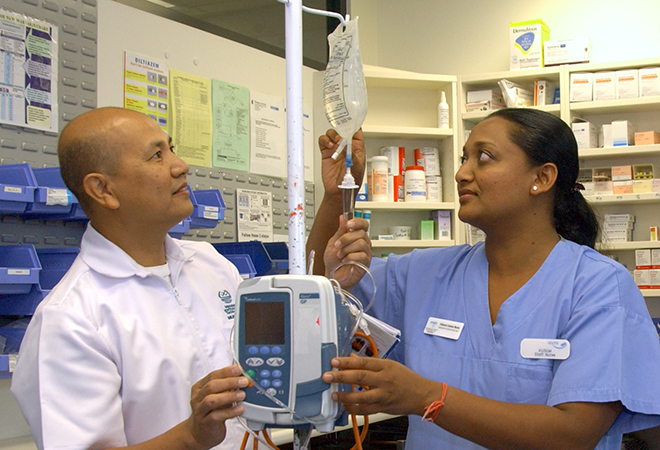
Walking in Another’s Shoes: Encouraging person-centred care through an experiential education programme
Status
Completed: 30 June 2012
Project Details
A project completed in 2010, undertaken by the Canterbury District Health Board, to provide a systematic education programme for residential care workers to enhance person-centred dementia care.
Aims
The main aims of the project were to:
- enhance dementia care among the dementia care workforce
- provide staff training that ensures high standards of dementia care
- encourage a paradigm shift to person-centred care in attitudes and practice
- provide student-centred adult learning, integrating reflection and experience.
Methodology
The project took a mixed method approach, both qualitative and quantitative, including:
- evaluation questionnaires completed by students at the end of the programme
- student feedback about the effect of the programme provided at the final workshop
- students completing the ‘Approaches to Dementia Questionnaire’ at the start and end of the programme which measured how positive and person-centred their attitudes to dementia care were.
Team

Susan Gee
Project leader
Canterbury District Health Board
Maria Scott
Canterbury District Health Board
Matthew Croucher
Canterbury District Health BoardStatus
Funding
$2,375.00 (excl GST)
Key Findings
The key findings from the project included:
- The evaluation questionnaires indicated that the course was very well received. Across seven cohorts and over 100 participants, every participant rated the course as being very or extremely valuable overall and indicated that they would recommend the course to others.
- Themes in the students’ written feedback included an increase in knowledge, skills, and ideas, particularly for behaviours that challenge, alongside strong themes of person-centred insights in understanding the individual, their history, needs, and reason for behaviours.
- Ratings of the self-perceived impact of the course are available for 67 participants from the four most recent cohorts. Participants rated the course highly in the extent to which it improved their skills in working with people with dementia, their enjoyment and understanding of their job, and their understanding of dementia.
- Carers who completed the Approaches to Dementia Questionnaire showed a significant improvement in positive attitude and person-centred attitude.
- The participants’ clinical manager was asked to complete a confidential rating of the students’ person-centred care behaviour using part of the Person-Directed Dementia Care Assessment Tool (State of Wisconsin, 2006). There was a significant improvement in the managers’ ratings of the person-centredness of the care provided post-course versus pre-course.
Key Recommendations
The key recommendations from the project included:
Current research | The Health Board is currently introducing a six-month follow-up to assess whether change is sustained, a scale to measure positive experiences of the care role, and a clinical scenario to assess preferred care approaches.
Looking to the future | Our experience suggests that it is possible to design and deliver an effective and enjoyable programme based on adult learning principles that engages both hearts and minds.
Challenges for the future | The success of ‘Walking in Another’s Shoes’ brings a number of challenges for the future as the programme extends to different groups and regions. As the programme rolls out via the South Island Regional Dementia Initiative, content fidelity is supported by the collation of trainer manuals and interactive CDs of lectures. One fundamental question is how much of the success of ‘Walking in Another’s Shoes’ is attributable to the outstanding programme facilitator rather than the teaching package itself, and how this can be carried over to new generations of the programme.
Training the trainer | To ensure a facilitation style that embodies the vision of the programme, a ‘train the trainer’ approach with ongoing mentoring is being used.
Supporting the change in the person-centred approach | Another fundamental question is around how to encourage the organisational culture and leadership needed to support the change in person-centred approach that ‘Walking in Another’s Shoes’ inspires in individuals.
Complementary initiatives | The project team are exploring complementary initiatives, for example, introducing group brainstorming sessions to encourage appreciative inquiry at a facility level or person-centred leadership training.
A guide prepared by Susan Gee, Maria Scott and Matthew Croucher.
(PDF, 624KB, 10-pages).
- 30 June 2012